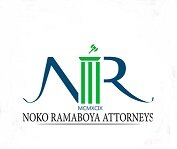Best Real Estate Due Diligence Lawyers in Pretoria
Share your needs with us, get contacted by law firms.
Free. Takes 2 min.
Free Guide to Hiring a Real Estate Lawyer
List of the best lawyers in Pretoria, South Africa
About Real Estate Due Diligence Law in Pretoria, South Africa
Real Estate Due Diligence Law in Pretoria, South Africa is a comprehensive process conducted prior to the purchase or lease of a property. It includes an in-depth examination of all legal documents related to the property, verifying the property ownership, ensuring compliance with local zoning laws, inspecting the physical condition of the property and assessing any potential risks. By doing so, a prospective buyer or investor can make an informed decision about the viability of the property investment.
Why You May Need a Lawyer
Given the complexity of due diligence in real estate transactions, legal assistance is essential. A lawyer helps in verifying all necessary documentation, inspecting the legal status of the property, identifying whether there are any pending legal issues, and ensuring compliance with all relevant South African property laws. A lawyer's expertise can also be invaluable in negotiating the terms of a property agreement.
Local Laws Overview
Several key local laws govern Real Estate Due Diligence in Pretoria, South Africa. These include the Property Act of 1975, which regulates immovable property transactions, the Sectional Titles Act of 1986, which governs the division of buildings into parts for separate ownership, and the Municipal Planning By-Law, which sets out regulations for zoning and land use. Additionally, the Rental Housing Act and Consumer Protection Act offer protections for residential tenants.
Frequently Asked Questions
What happens if I fail to perform due diligence?
Failing to conduct proper due diligence can lead to substantial financial loss, legal disputes, and other potential challenges. That's why it's critical to seek legal advice during this process.
Should I always seek legal help during due diligence?
While it's technically possible to do due diligence without a lawyer, the complexity of the legal aspects involved makes professional assistance highly advisable.
What does the law say about physical inspections during due diligence?
The South African law does not explicitly require physical inspections during due diligence. However, a thorough inspection can identify potential problems and protect the buyer from future liability.
Can the buyer negotiate terms after due diligence?
Yes, if the due diligence reveals any issues or discrepancies, the buyer has the right to negotiate the terms of the sale or lease agreement.
Do zoning laws affect due diligence?
Yes, zoning laws are an important part of due diligence as they dictate the use of the property. Non-compliance with zoning laws can lead to legal issues.
Additional Resources
For more information and support, consider accessing resources such as the Department of Land Affairs, the South African Council for the Property Valuers Profession, and the South African Property Owners Association. These organizations provide a wealth of information and can be very helpful in clarifying local property laws and regulations.
Next Steps
If you require legal assistance in Real Estate Due Diligence, start by identifying a reputable legal firm with specific expertise in South African property law. Schedule a consultation, come prepared with detailed questions and provide the lawyer with all the necessary information about the property. Your lawyer will then guide you through the detailed process of Real Estate Due Diligence to protect your rights and investment.
Lawzana helps you find the best lawyers and law firms in Pretoria through a curated and pre-screened list of qualified legal professionals. Our platform offers rankings and detailed profiles of attorneys and law firms, allowing you to compare based on practice areas, including Real Estate Due Diligence, experience, and client feedback.
Each profile includes a description of the firm's areas of practice, client reviews, team members and partners, year of establishment, spoken languages, office locations, contact information, social media presence, and any published articles or resources. Most firms on our platform speak English and are experienced in both local and international legal matters.
Get a quote from top-rated law firms in Pretoria, South Africa — quickly, securely, and without unnecessary hassle.
Disclaimer:
The information provided on this page is for general informational purposes only and does not constitute legal advice. While we strive to ensure the accuracy and relevance of the content, legal information may change over time, and interpretations of the law can vary. You should always consult with a qualified legal professional for advice specific to your situation.
We disclaim all liability for actions taken or not taken based on the content of this page. If you believe any information is incorrect or outdated, please contact us, and we will review and update it where appropriate.
















